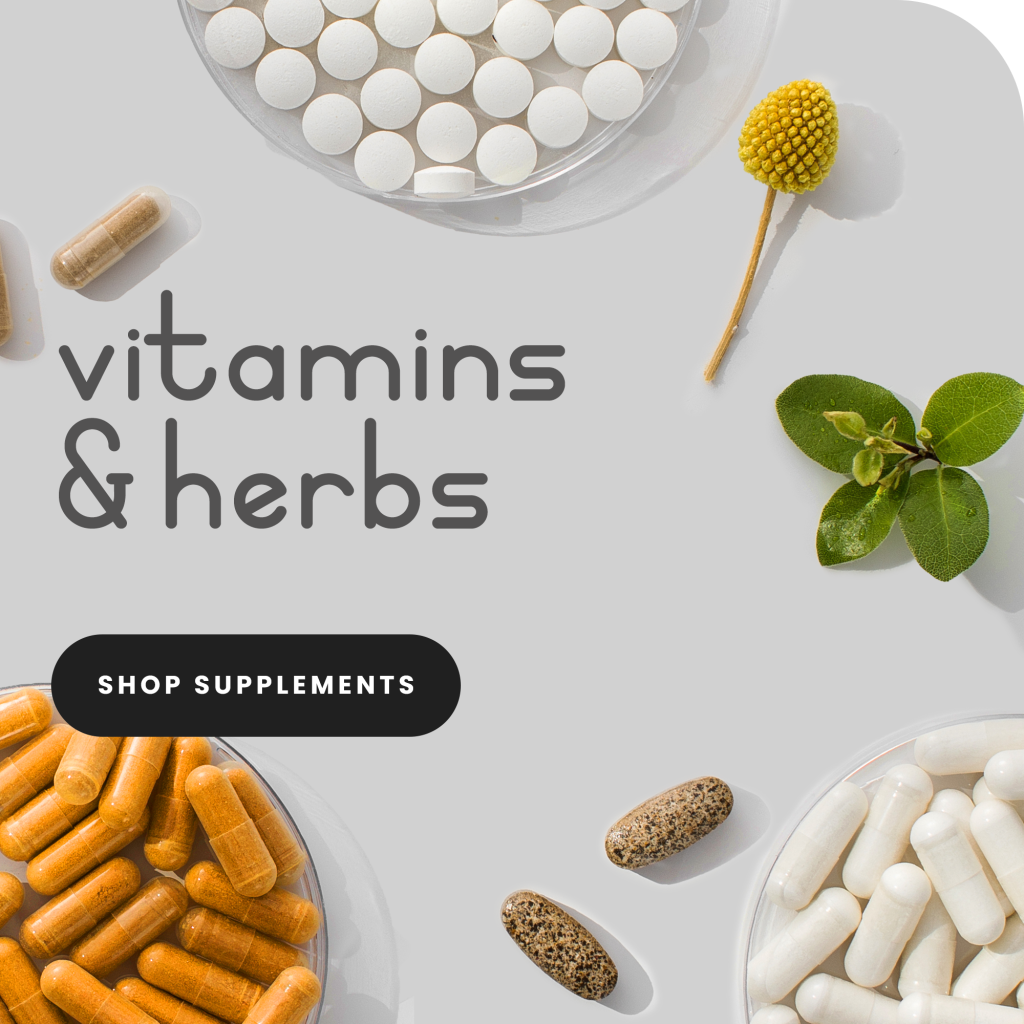Myth 1: More is Always Better
FACT: In reality, you need the right dose, not the highest dose.
One prevalent misconception is the belief that taking higher doses of supplements will automatically get better results. Some people overdose themselves on certain nutrients, not realising that this can create a deficiency in others – or build up to toxic levels.
Myth 2: Nutritional Supplements are Pointless Because You Get The Nutrients you Need from Food
FACT: There’s a difference between the adequate level of a nutrient and the ideal level. What’s more, 10% of people in Britain have at least one nutritional deficiency.
In healthy individuals this is true, but in times of illness we may benefit from far higher levels of some nutrients than we can easily get from food. Research has shown, for example, that we would need to eat 20 to 40 oranges a day to get the ideal amount of Vitamin C our bodies can use to fight off a cold. What’s more, people who supplement with vitamin C during times of stress have been found 50% less likely to come down with a cold.
Factors such as age, sex and lifestyle can influence our nutrient requirements, too. Researchers are just beginning to learn that our genetics can result in varying needs, too. Folic acid is one example: the RDA has recently been found to be far too low for some people, even though it is adequate for others.
Most people in the UK don’t take supplements to treat a deficiency disease (although 1 in 10 of us do have a deficiency). It’s mainly about having a longer and healthier life with them.
Myth 3: All Nutritional Supplements are Pure and Clean
FACT: There’s no UK law that supplement ingredients have to be purity tested. Always choose high quality supplement brands which state clearly that they have their ingredients checked by third-party labs.
Brands which aren’t third-party purity tested can contain pesticides, heavy metals and other toxic contaminants. Supplements, and the ingredients that go into them, do not have to be purity tested by law. They follow the same legal requirements as food.
Good supplement brands have their ingredients checked by third-party laboratories. This will make sure they’re not contaminated with pesticides, heavy metals or other toxins. This testing obviously costs money which is why most cheaper brands don’t bother – especially if they suspect their ingredients won’t pass the tests.
Myth 4: All Nutritional Supplement Doses Are Legally Regulated
FACT: There is no regulation of nutritional supplement doses in the UK. Chose a good brand you can trust.
Don’t assume all supplements go through regulation or standardisation. There are no UK regulations or laws about the doses that supplements can contain, which is why it’s essential to stick to reputable brands that base their doses on scientific research and accepted safe levels.
Myth 5: All Nutrients Are Safe at Any Dose
FACT: With some nutrients, it is possible to take too much and cause yourself harm. Always follow dosage instructions on the label.
Some people take more of their supplements than is indicated on the label, assuming there’s no such thing as an “overdose” of nutrients. For some vitamins and minerals this is true, as we only absorb as much as we need and the rest passes through us. Many water-soluble vitamins, like vitamin C and B-complex vitamins, are usually perceived as safe in quite high doses because excess amounts are excreted through urine.
Yet despite this, taking too much of some other supplements can indeed be harmful or even toxic. Many minerals and the fat soluble vitamins A, D, E and K are stored in the liver and other organs, and can accumulate. This is why you should stay safe and always follow the dosage instructions on the label, unless a suitably qualified dietician or doctor advises otherwise.
Myth 6: Natural Means Safe
FACT: Some vitamins, minerals and herbal supplements can interact with prescription medicines, either making their effects stronger or working against them.
When you’re taking any new medicine, herbal supplement of vitamin or mineral, always check that it’s compatible with the other things you take. You can ask your doctor or chemist. Some herbs have the same effect as prescription medicines, so you could be overdosing. Meanwhile some others can stop you absorbing medicines or stop them working. Here are some examples:
- Calcium and magnesium can reduce the amount you absorb of several types of antibiotic, so you should stop these supplements while on antibiotics.
- Berberine lowers blood sugar, so you should not take it with Metformin as you will be doubling up the effect.
- Charcoal capsules can stop you absorbing many types of medicine and even other supplements.
- Biotin can give incorrect results in lots of different blood tests, so you need to stop taking it about 2 weeks before your blood is tested.
Nutritional supplements are safe if you take them at the right dose, if they’re right for your personal health profile, and if they don’t clash with other medicines you take.
Myth 7: Nutritional Supplements Just make expensive urine
FACT: Many people in Britain have nutritional deficiencies and fully assimilate vitamins and minerals from supplements.
Some people like to quote this untrue statement, claiming that vitamins from supplements are somehow different from the ones in food. They imply that they cannot be used by the body in the same way. Other people suggest that there’s no such thing as nutritional deficiencies, so any vitamins from tablets are unnecessary. Both of these claims are completely wrong.
The idea that nutritional supplements are a waste of money because we just pee them out is based on the idea what we get all the vitamins and minerals we need from our food. But we know that lots of people in the UK have a wide range of nutritional deficiencies. How many people truly eat their 5 fruit and vegetable portions a day? And how nutritious are the imported fruit a vegetables in our supermarkets, that were grown in greenhouses or picked unripe and shipped thousands of miles in refrigerated containers? Iron deficiency affects more than half of British women of menstruating age, vitamin D deficiency is almost a national epidemic, and calcium and magnesium deficiencies are well recognised by the NHS too. The idea that improving our nutritional status is pointless or unachievable ignores medical consensus and clear evidence.
So, what nutrients do come out in our urine? We pee out a few minerals, like nitrogen, potassium and phosphorus, because they’re waste products or because the body does this to keep exactly the right amount in our body cells. These are minerals that we need to consume as often as we excrete them, for the body to carry out this balancing act. Similarly, the human body can excrete water-soluble vitamins (vitamins B and C, for example) and a few minerals in our urine if we eat more than our body needs. This doesn’t mean we don’t need to eat vitamins C, for example. Our body cannot store it, which makes it all the more important to eat it every day and keep our body well-supplied.
Conclusion
To navigate the realm of nutritional supplements effectively, you should be aware of these misconceptions and seek guidance from a dietician or nutritionist if necessary. Understanding your own specific needs, eating a balanced and healthy diet, and using supplements sensibly can all support good health.








